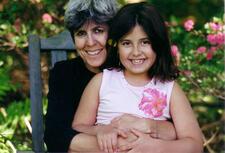Performing Arts: Theater
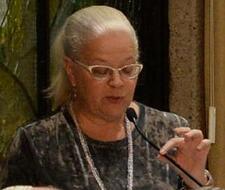
Judith Katzir
Yehudit Katzir (b. 1963) is an Israeli author who emerged as a leading female voice in what had been a male-dominated literary field until the 1980s. Her novels and short stories are noted for their idiosyncratic and lyrical language, as well as their focus on female identity and treatment of taboo themes.
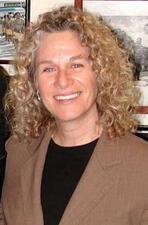
Carole King
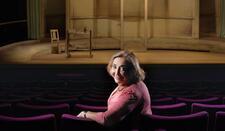
Lia Koenig
Lia Koenig is known as the First Lady of Israeli Yiddish Theater for her complex roles in world drama. After immigrating to Israel from Poland in 1961 with her husband Zevi Stolper, she began her legendary career at the Habimah theater. Koenig was awarded the Israel Prize, the Israel Theater Prize, and the EMET Prize.
Miriam Kressyn
Miriam Kressyn was that rare talent known for both her performances and her work as a historian of the Yiddish theater. Kressyn performed with Julius Nathanson’s, Maurice Schwartz’s, and Aaron Lebedeff’s Yiddish theater troupes and toured Argentina and Europe. For over forty years, she and her husband hosted the radio program Memories of the Yiddish Theater.
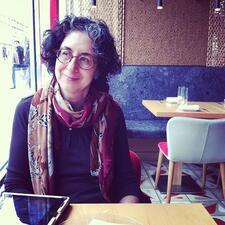
Ellen Kushner
Ladino (Judeo-Spanish) Theater in the United States
The role of women in the Ladino theater is an eloquent testimony to how they have contributed to their communities, responded to national crises, and lent their energies to the continuation of the Judeo-Spanish cultural and linguistic heritage. Esther Cohen, who wrote and performed plays in Brooklyn in the 1930s, is an exemplary model of women involved in American Judeo-Spanish theater.
Linda Lavin
A prolific performer on stage and small screen, actor-singer Linda Lavin has been a role model for many of America’s working women. While her Jewish heritage has not always been the focus of her career, she has powerfully portrayed Jewish women whenever the roles have come her way—which they increasingly do.
Tillie Leblang
Tillie LeBlang was known as a businesswoman, philanthropist, and mother. With her husband and daughters, LeBlang created a multi–million–dollar box office that transformed the way Broadway shows sold tickets. When her husband, Joseph, died in 1931, she took control of the family business and continued to manage it until just a few months before she died.
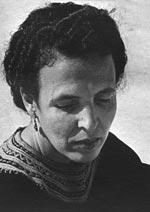
Sara Levi-Tanai
Sara Levi-Tanai was the founder, choreographer, and artistic director of the Inbal Dance Theater. With an original style, she established a unique dance theater that combined the East and West and the early history of the Nation of Israel with the present, as well as creating a new language of movement in the world of dance that is called “the Inbal language.”
Irene Lewisohn
Irene Lewisohn was a Jewish philanthropist whose devotion to the arts led to the formation of the Neighborhood Playhouse and the Museum of Costume Art (now part of the Metropolitan Museum of Art). Her involvement in these and other social and philanthropic activities make her an important figure in New York’s cultural history.
Mischket Liebermann
Mischket Liebermann was an actress who was an active member of the KPD (Communist Party of Germany). Known for her roles in Scholem Asch’s Bronx Express and Ernst Toller’s Hoppla, Liebermann performed throughout Germany and the Soviet Union. After 1945, she participated in the cultural reconstruction of East Germany.
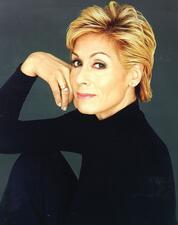
Judith Light
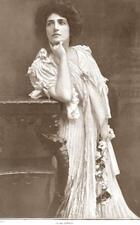
Clara Lipman
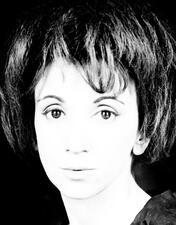
Judith Malina
Judith Malina was an actress, director, and producer who dedicated her life to creating avant-garde, politically charged theater works, and activism. She co-founded the experimental Living Theatre company with her husband; was involved in the antiwar movement, Women Strike for Peace, and the Industrial Workers of the World; and won many honors and awards for her acting and directing work.

Julianna Margulies
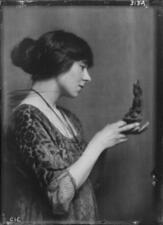
Fania Marinoff
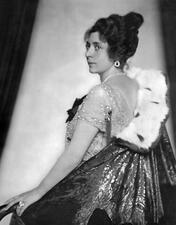
Fritzi Massary
Fritzi Massary was a prominent singer in Berlin prior to the onset of World War II. She reigned over the Berlin stage, singing the title role in Franz Lehar’s The Merry Widow and Adele in Johann Strauss’s Die Fledermaus. Among the works created especially for her was the operetta Die Kaiserin by Leo Fall.

Elaine May
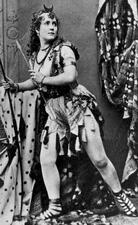
Adah Isaacs Menken
In her short but remarkable life, actress Adah Isaacs Menken became legendary for her scandalous defiance of convention. One of the most glamorous celebrities of the 1860s, Menken also cultivated a literary following. She wrote poetry and developed relationships with Walt Whitman and Charles Dickens, among others.

Helen Menken
One of the finest actors of her day, as well as a producer and a philanthropist, Helen Menken devoted her entire life to the American theater. While she was known for playing a lesbian in The Captive, for which she was arrested during a performance, and her role as Elizabeth I in Mary of Scotland, her biggest contribution to theater was creating the 1942–1946 Stage Door Canteen through the American Theater Wing, in which Broadway stars performed for service people.
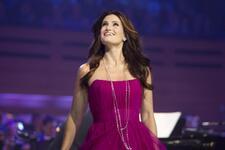
Idina Menzel
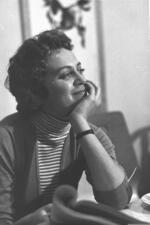
Hanna Meron (Marron)
Hanna Meron began her long acting career as a four-year-old child prodigy, appearing in children’s theater, radio plays, and films. In 1945 she joined the recently founded Cameri Theater. She helped shape the company by becoxming active in management and as a member of the repertory committee, while also rising to prominence as one of Israel’s greatest actors.
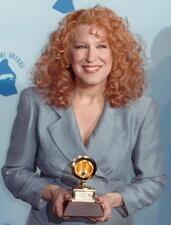
Bette Midler
Bette Midler went from canning pineapples at a factory in Honolulu to starring in over 20 films, releasing two dozen records, and touring the world with record-breaking live concert performances. Midler got her start at a gay bathhouse in New York, where she developed the campy and confident persona “The Divine Miss M.” Her career in show business spans decades, old and new media, and musical genres.

Ariane Mnouchkine
